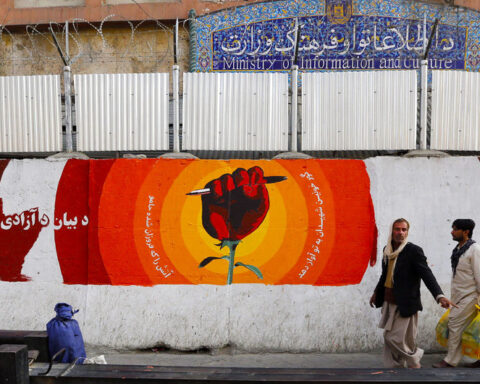The media outlets reported Sunday that 37 smartphones belonging to journalists, human rights activists, business executives and two women close to murdered Saudi journalist Jamal Khashoggi were on a list of more than 50,000 numbers that were concentrated in countries that engage in surveillance of their citizens.
These countries include clients of the Israeli firm NSO Group, which is a global leader in the largely unregulated private spyware industry.
One of the media partners, The Washington Post, said in its article on the spyware that the phone numbers on the list did not identify names, but reporters were able to identify more than 1,000 people in 50 countries on the list, including several Arab royal family members, at least 65 business executives, 85 human rights activists, 189 journalists, and more than 600 politicians and government officials, including several heads of state and prime ministers.
Journalists on the list that dates to 2016 included reporters working overseas for Voice of America, CNN, The New York Times, The Wall Street Journal, Bloomberg News, Le Monde in France, The Financial Times in London and Al Jazeera in Qatar.
Forbidden Stories, a Paris-based journalism nonprofit, and Amnesty International, a human rights group, had access to the list and shared it with the news organizations, which then researched the information. It was not clear who put the numbers on the list or whether the phones’ owners were surveilled.
The NSO Group says it licenses its Pegasus spyware to track terrorists and criminals. It said the findings of the media investigation were exaggerated and unfounded. The company said it does not operate the spyware it licenses to clients and “has no insight” into any intelligence they gathered.
NSO said its customers include 60 intelligence, military and law enforcement agencies in 40 countries, but declined to identify any of them.






